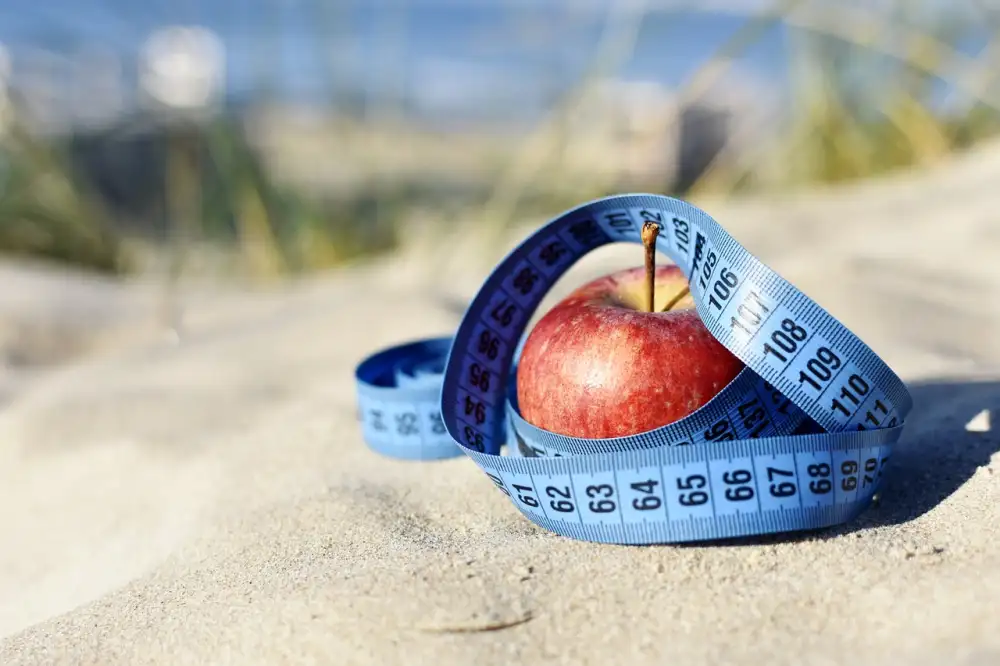Powerful Proteins for Healthy Weight Gain: Fueling Your Body with Essential Nutrients

- Importance of protein in weight gain
- High-protein foods for weight gain
- Lean meats and poultry as protein sources
- Incorporating dairy products for increased protein intake
- Plant-based protein options for weight gain
- Nut and seed sources of protein for gaining weight
- Protein-rich snacks and supplements for weight gain
- Balancing protein intake with other macronutrients
Gaining weight is often associated with unhealthy eating habits and excessive calorie intake. However, it is important to understand that gaining weight in a healthy manner is equally significant. Protein consumption plays a crucial role in achieving this goal. Proteins are the building blocks of our body and are essential for muscle growth and repair. By incorporating high-protein foods into your diet, you can fuel your body with the necessary nutrients for healthy weight gain. In this article, we will explore the importance of protein in weight gain and discuss various sources of protein that can help you achieve your goals in a nutritious way.
Importance of protein in weight gain
Protein plays a crucial role in weight gain as it is the building block of muscles. When we consume protein, our body breaks it down into amino acids, which are essential for muscle growth and repair. Increasing protein intake can help promote muscle synthesis and prevent muscle breakdown, leading to healthy weight gain. Additionally, protein has a higher thermic effect compared to carbohydrates and fats, meaning that it requires more energy to digest, thus boosting metabolism. Including adequate protein in your diet is vital for achieving sustainable weight gain and maintaining overall health.
High-protein foods for weight gain
High-protein foods play a crucial role in weight gain, as they provide the necessary nutrients to build and repair muscles. Incorporating these foods into your diet can help you achieve your weight gain goals in a healthy way. Some excellent high-protein options include lean meats such as chicken, turkey, and beef. These meats not only provide ample protein but also contain essential vitamins and minerals. Additionally, fish like salmon and tuna are rich in omega-3 fatty acids, which promote overall health. Eggs are another fantastic source of protein and can be easily incorporated into meals or snacks. They are also packed with vitamins and minerals. Other high-protein foods include legumes like lentils, chickpeas, and beans, which are not only affordable but also versatile in cooking. By including these high-protein foods in your diet, you can ensure that you are fueling your body with the necessary nutrients for healthy weight gain.
Lean meats and poultry as protein sources
Lean meats and poultry are excellent sources of high-quality protein for individuals looking to gain weight in a healthy way. These protein-rich foods not only provide essential amino acids but also offer other important nutrients like iron, zinc, and B vitamins. Chicken breast, turkey breast, lean cuts of beef, and pork tenderloin are all great options. They are low in fat and calories while being packed with muscle-building protein. Including these lean meats and poultry in your diet can help you meet your daily protein requirements while keeping your overall calorie intake in check.
Incorporating dairy products for increased protein intake
Incorporating dairy products into your diet is a great way to increase your protein intake for healthy weight gain. Dairy products such as milk, cheese, and yogurt are not only rich in protein but also provide essential nutrients like calcium and vitamin D.
Milk is an excellent source of protein, containing about 8 grams per cup. It can be consumed on its own or used as a base for smoothies, shakes, or even added to cereal or oatmeal for an extra protein boost.
Cheese is another dairy product that is high in protein. It can be enjoyed on its own as a snack or incorporated into meals like sandwiches, salads, or pasta dishes. Cottage cheese is particularly beneficial as it contains a higher amount of protein compared to other types of cheese.
Yogurt is not only delicious but also a great source of protein. Greek yogurt, in particular, has a higher protein content compared to regular yogurt. It can be enjoyed plain or mixed with fruits and nuts for added flavor and nutrients.
By incorporating dairy products into your diet, you can easily increase your protein intake while enjoying the benefits of other essential nutrients. However, it's important to choose low-fat or reduced-fat options to avoid excessive calorie intake. Remember to consult with a healthcare professional or registered dietitian before making any significant changes to your diet.
Plant-based protein options for weight gain
For those following a vegetarian or vegan diet, there are plenty of plant-based protein sources that can aid in healthy weight gain. Legumes such as lentils, chickpeas, and black beans are excellent choices as they are not only high in protein but also packed with fiber and essential nutrients. Additionally, tofu and tempeh, made from soybeans, provide a complete source of protein. Quinoa, a grain-like seed, is another great option as it contains all nine essential amino acids. Other plant-based protein sources include edamame, chia seeds, hemp seeds, and spirulina. Incorporating these plant-based proteins into your meals can help you achieve your weight gain goals while still maintaining a balanced and nutritious diet.
Nut and seed sources of protein for gaining weight
Nuts and seeds are excellent sources of protein for those looking to gain weight in a healthy way. Almonds, for example, contain about 6 grams of protein per ounce, while pumpkin seeds provide around 9 grams of protein per ounce. These nutrient-dense foods not only offer high levels of protein but also pack essential vitamins, minerals, and healthy fats. Additionally, chia seeds and hemp seeds can be sprinkled on meals or blended into smoothies to increase protein intake. Including a variety of nuts and seeds in your diet can help you meet your daily protein requirements while promoting weight gain in a nutritious manner.
Protein-rich snacks and supplements for weight gain
Protein-rich snacks and supplements play a crucial role in supporting weight gain. They provide a convenient and efficient way to increase protein intake throughout the day. Snacks such as protein bars, Greek yogurt, and cottage cheese are excellent options. These snacks not only provide a good amount of protein but also offer other essential nutrients like calcium and probiotics.
In addition to snacks, protein supplements like whey protein powder can be beneficial for those looking to gain weight. Whey protein is easily absorbed by the body and can be added to smoothies or shakes for a quick and effective protein boost. Other supplements like casein protein or soy protein isolate can also be used as alternatives.
It's important to note that while these snacks and supplements are helpful, they should not replace whole food sources of protein. Whole foods provide a wide range of nutrients that are necessary for overall health. Therefore, it's best to incorporate both whole food sources and snacks/supplements into your diet to ensure a balanced intake of macronutrients.
Remember, when using supplements, it's crucial to consult with a healthcare professional or registered dietitian to determine the appropriate dosage and ensure it aligns with your specific dietary needs. Additionally, always opt for reputable brands that undergo third-party testing to guarantee quality and safety.
By incorporating protein-rich snacks and supplements into your diet, you can effectively increase your daily protein intake, support muscle growth, and promote healthy weight gain on your journey towards achieving your desired physique.
Balancing protein intake with other macronutrients
Balancing protein intake with other macronutrients is crucial for a healthy weight gain journey. While proteins are essential for muscle growth and repair, it's important to also incorporate carbohydrates and fats into your diet. Carbohydrates provide energy for workouts and help replenish glycogen stores, while healthy fats support hormone production and aid in nutrient absorption.
To strike the right balance, aim to consume a variety of whole grains, fruits, and vegetables as your primary sources of carbohydrates. These foods not only provide essential nutrients but also contain fiber that aids digestion. Opt for complex carbohydrates like quinoa, brown rice, and sweet potatoes rather than refined grains.
When it comes to fats, choose sources such as avocados, nuts, seeds, and olive oil. These foods are rich in monounsaturated and polyunsaturated fats that promote heart health. Avoid saturated and trans fats found in processed snacks and fried foods as they can contribute to weight gain without providing significant nutritional benefits.
Remember that portion control is key when balancing macronutrients. Aim to have a palm-sized serving of lean protein (such as chicken breast or tofu), a fist-sized portion of complex carbohydrates (like whole wheat pasta or beans), and a thumb-sized amount of healthy fat (such as almond butter or coconut oil) in each meal.
By maintaining this balanced approach to macronutrient intake, you can ensure that your body receives the necessary fuel for weight gain while also supporting overall health and well-being.
In conclusion, proteins play a crucial role in a healthy weight gain journey. They provide the essential nutrients needed to build and repair muscles, which is vital for increasing body mass. Incorporating high-protein foods such as lean meats, poultry, dairy products, plant-based sources, nuts, and seeds can help fuel the body with the necessary protein for weight gain. Additionally, protein-rich snacks and supplements can be beneficial in boosting protein intake. However, it's important to balance protein consumption with other macronutrients like carbohydrates and fats to ensure a well-rounded diet. By focusing on consuming adequate amounts of protein and maintaining a balanced approach to nutrition, individuals can achieve their weight gain goals while promoting overall health and wellness.
Published: 06. 03. 2024
Category: Health



